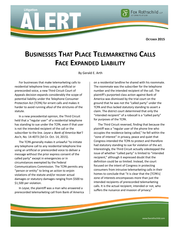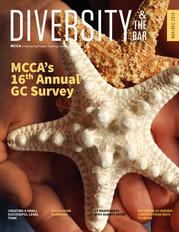It Could Have Been Worse: U.S. Department of Labor Increases the Salary Level Necessary for Employers To Classify Employees as Exempt From Overtime – May 18, 2016
Fox Rothschild
Description
Labor & Employment Alert | May 2016
While the doubling of the salary threshold to satisfy
the white collar exemptions is not good news for the
employer community, it could have been much worse. In
its proposed regulations, the DOL suggested increasing
the salary threshold to more than $50,000, having yearly
automatic increases and changing the duties tests to make
it more difficult to for employers to classify employees
as exempt from overtime even if they are paid well over
$50,000. In response to these proposals, the employer
community warned the DOL that there would be a drastic
negative impact on the economy if these proposals went
forward. It seems that the DOL, at least in part, listened to
the issues raised by employers in response to their initial
proposals.
As a result of these amendments, employers must
reassess the status of their lower-level exempt staff.
If exempt employees currently earn less than $913.00 per week and the employer wants to maintain the employee as exempt, assuming the duties tests are satisfied, the employer must raise the employee’s salary to at least $913.00 per week or raise the employee’s salary to $821.17 per week and pay a nondiscretionary bonus or incentive compensation at least quarterly in an amount that averages out to $91.30 per week. The other option is for employees to reclassify such employees as nonexempt and entitled to overtime. Whatever option the employer selects, it is important for the employer to work closely with counsel to ensure that the ramifications of their decision is well understood and properly implemented. For more information about this alert, please contact Carolyn D.
Richmond at crichmond@foxrothschild.com or 212.878.7983, Glenn S. Grindlinger at ggrindlinger@ foxrothschild.com or 212.905.2305 or any member of the firm’s Labor & Employment Department. Attorney Advertisement © 2016 Fox Rothschild LLP. All rights reserved.
All content of this publication is the property and copyright of Fox Rothschild LLP and may not be reproduced in any format without prior express permission. Contact marketing@foxrothschild.comfor more information or to seek permission to reproduce content. This publication is intended for general information purposes only. It does not constitute legal advice.
The reader should consult with knowledgeable legal counsel to determine how applicable laws apply to specific facts and situations. This publication is based on the most current information at the time it was written. Since it is possible that the laws or other circumstances may have changed since publication, please call us to discuss any action you may be considering as a result of reading this publication. www.foxrothschild.com .
If exempt employees currently earn less than $913.00 per week and the employer wants to maintain the employee as exempt, assuming the duties tests are satisfied, the employer must raise the employee’s salary to at least $913.00 per week or raise the employee’s salary to $821.17 per week and pay a nondiscretionary bonus or incentive compensation at least quarterly in an amount that averages out to $91.30 per week. The other option is for employees to reclassify such employees as nonexempt and entitled to overtime. Whatever option the employer selects, it is important for the employer to work closely with counsel to ensure that the ramifications of their decision is well understood and properly implemented. For more information about this alert, please contact Carolyn D.
Richmond at crichmond@foxrothschild.com or 212.878.7983, Glenn S. Grindlinger at ggrindlinger@ foxrothschild.com or 212.905.2305 or any member of the firm’s Labor & Employment Department. Attorney Advertisement © 2016 Fox Rothschild LLP. All rights reserved.
All content of this publication is the property and copyright of Fox Rothschild LLP and may not be reproduced in any format without prior express permission. Contact marketing@foxrothschild.comfor more information or to seek permission to reproduce content. This publication is intended for general information purposes only. It does not constitute legal advice.
The reader should consult with knowledgeable legal counsel to determine how applicable laws apply to specific facts and situations. This publication is based on the most current information at the time it was written. Since it is possible that the laws or other circumstances may have changed since publication, please call us to discuss any action you may be considering as a result of reading this publication. www.foxrothschild.com .













